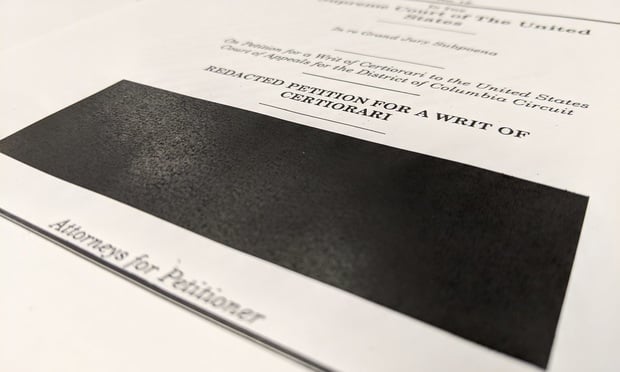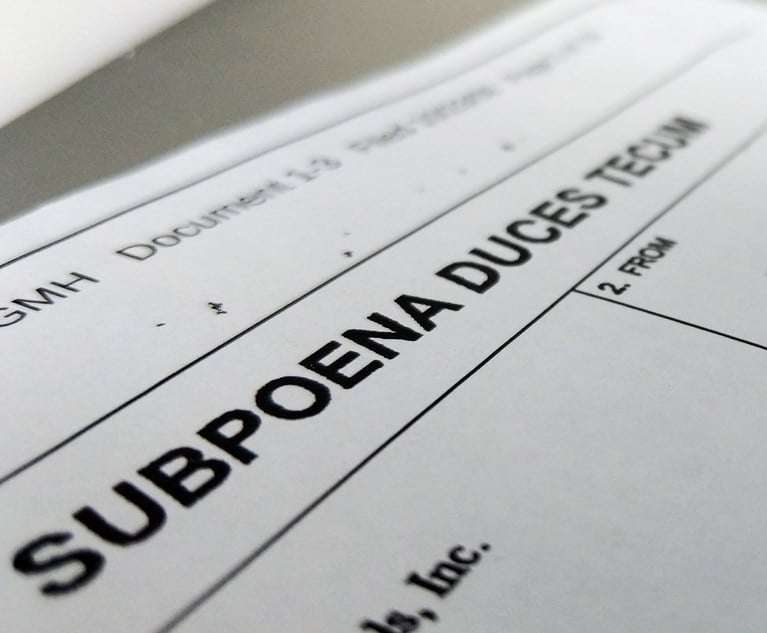The foreign-owned company fighting a grand jury subpoena apparently tied to the special counsel’s Russia investigation is warning the U.S. Supreme Court that a decision subjecting the enterprise to the U.S. criminal process would create a “foreign policy nightmare” and invite reciprocal treatment from other countries.
On Tuesday, the Supreme Court unsealed a partially redacted petition from the company’s defense lawyers that shed light on a few new details but otherwise maintained the secrecy that has surrounded the case for months. The foreign-owned company is pushing to overturn a decision from a three-judge panel of the U.S. Court of Appeals for the D.C. Circuit, which ruled in December that the company could not invoke sovereign immunity to dodge a grand jury subpoena.

 A mystery company’s redacted cert petition was unsealed Tuesday.
A mystery company’s redacted cert petition was unsealed Tuesday.








